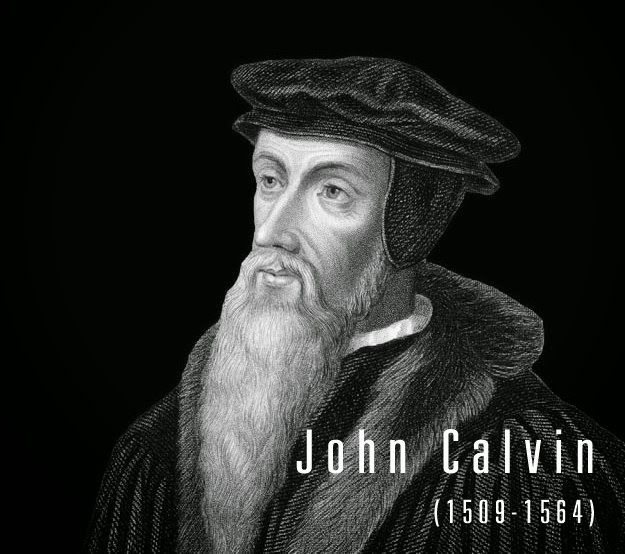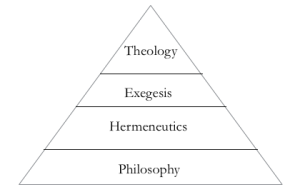This fall I started rereading Calvin’s Institutes, which may be my favorite book. When I first seriously engaged with Calvin it was the most theologically formative book I had read (that may still be the case). Once while I was in a conversation with a Ladder Day Saint I quoted Calvin and was then asked “WAIT- you guys are Calvinists?” I thought it was kind of a funny question, but regardless of what you believe about soteriology, all protestants are in some way Calvinists because of Calvin’s great influence on protestantism.
One of my favorite semesters of college was one where I took three different classes about bibliology and hermeneutics. One of my favorite parts of that semester was going to one class in the morning to hear the lecture and then another in the afternoon to hear that professor unknowingly critique the morning’s lecture. One such moment was when one professor presented a model of of how we study the Bible and theology. I can’t remember exactly what is looked like, but it was pretty similar to this:
Okay, his pyramid was probably way better than that, but the point is that there is a progression from Bible to theology. I think this method is really popular, but I think it is a bit overly simplistic. We don’t take off our “theological glasses” to read Scripture. We don’t lay aside doctrines like inerrancy and inspiration nor do we forget about the Nicene Creed before we read our Bibles. Right around here is where Calvin comes back to in play. More than shaping me theologically, Calvin showed me what to look for in the Bible.
Now I don’t mean to argue that a theological work, like Calvin, has the same authority as the Bible or that it is God’s very words like the Bible is. I do mean to say that our approach to Bible and theology is much more circular than the linear approach above. We come to the Bible and read the Bible for theological reasons. In fact theology helps illuminate Scripture, this is why Calvin says:
Moreover, it has been my purpose in this labor to prepare and instruct candidates in sacred theology for the reading of the divine Word, in order that they may be able both to have easy access to it and to advance in it without stumbling. For I believe I have so embraced the sum of religion in all its parts, and have arranged it in such an order, that if anyone rightly grasps it, it will not be difficult for him to determine what he ought especially to seek in Scripture, and to what end he ought to relate its contents.
Calvin set out to help his reader understand the Bible and to know what to look for. Perhaps being a faithful reader of Scripture means putting on our “theological glasses.”






1 Comment
Leave your reply.